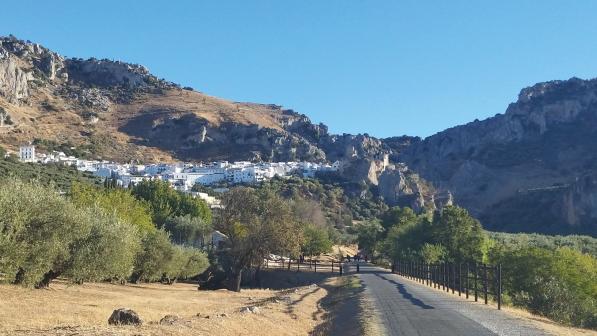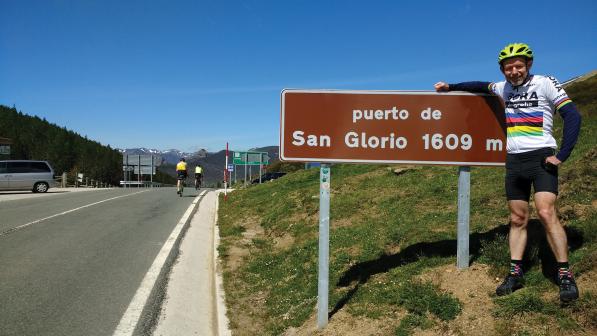Travellers’ tales: A rail-trail C2C cycle ride in Spain

There are more than 7,600km of disused railway lines in Spain that are being converted into vías verdes (‘greenways’). I persuaded my friend Ivan to join me on the almost complete VV Santander-Mediterraneo, which crosses Spain to finish in Valencia. “It’s a railway line,” I said, “there can’t be any climbs.”
We escaped Santander by train, heading for the start of the Vía Verde del Pas in nearby El Astillero and passing breakers’ yards, run-down factories, Stalinist housing blocks and incinerators.
The via verde we joined ran through an alpine-style valley and was blessed with smooth tarmac and blue sky. But at the end it climbs over 1,000m in the space of 12km. All those promises of a level route were broken by the mountains of Cantabria.
Once on top of the central plateau we had 750km of big skies, big rivers, countless tunnels and bridges, untouched forests and stunning local towns, each with its own Mudejar architecture – mostly Christian churches with fabulous Islamic brickwork and tiling.

While cruise ship passengers are herded like sheep to Barcelona, we had historic gems like Oña, Soria, Catalayud and Teruel almost to ourselves.
On several days we were the only cyclists outside of the towns. My road bike was fine for the tarmac and light gravel but on some of the loose and shingly stretches where the VV had yet to be completed – perhaps 20% – Ivan’s gravel bike was the better option.
We chanced on a newly opened section of VV that didn’t appear on any map and included a magnificent natural arch over the river. Two French cyclists alerted us to a film location from Dr Zhivago; David Lean apparently chose the area near Soria because it looked like Siberia. On some mornings it felt like it.
The last 160km of the VV Santander-Mediterraneo to Valencia uses the traffic-free VV Ojos Negros and VV Xurra – a good finish to a great ride. We dipped our tyres in the Med, with sunbathers wondering what these two old guys were up to.
Cycle magazine
Every two months Cycling UK members receive Cycle magazine, filled with interesting and informative articles, news and reviews for all cyclists.
Members can read the magazine in full online; non-members can read selected highlights.


